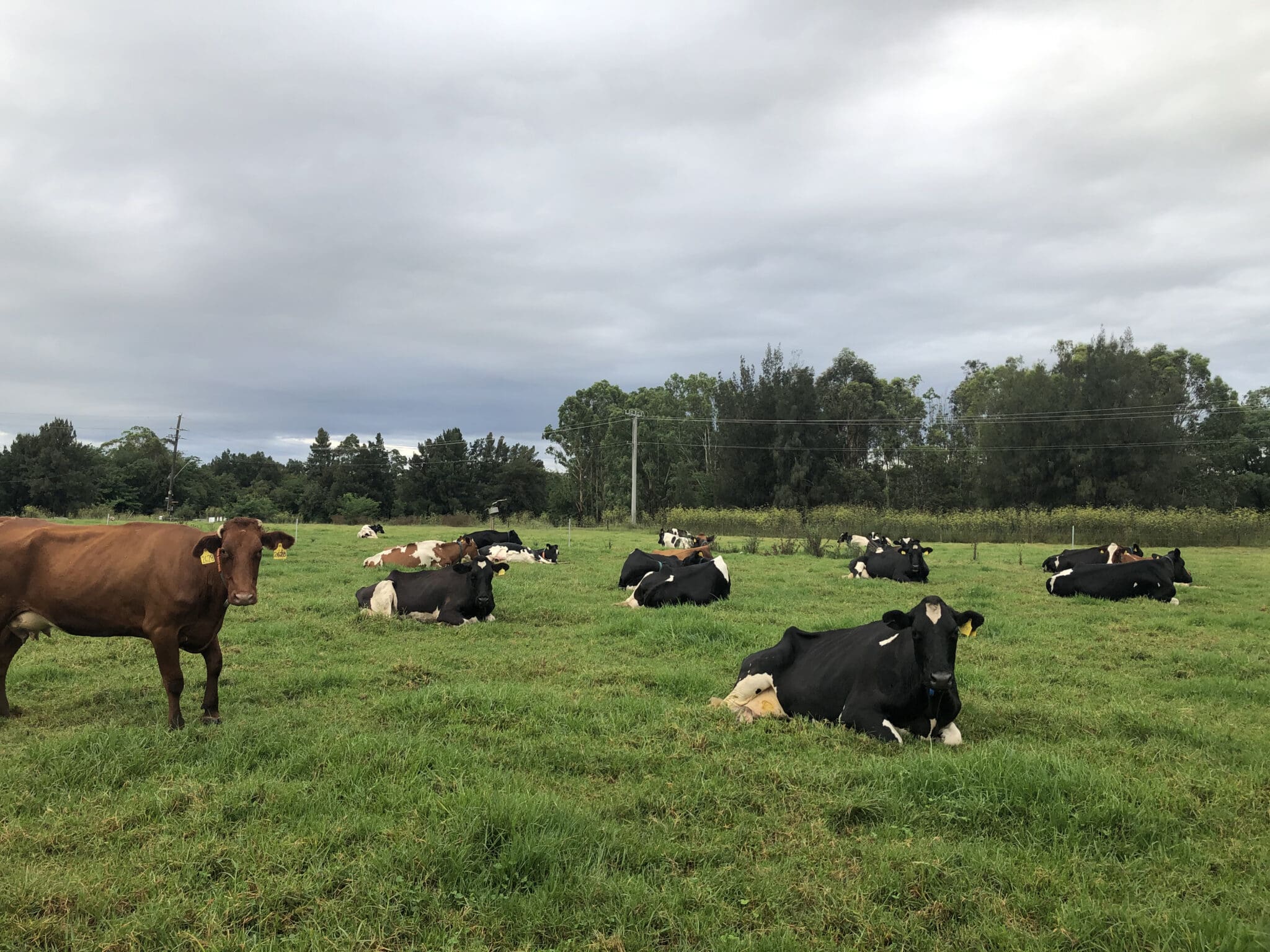After rust appeared in the 1861 and 1863 wheat crop of Camden West, things looked pretty grim. As an agricultural town that had pivoted heavily to flour production, lucrative sales to the Sydney market were critical to the region’s survival. Camden’s agricultural ascendancy had come to a close. But that wasn’t the end of Camden West, not at all. In 1885, thousands of acres of the Camden Park Estate were subdivided into smaller plots and sold off to interested buyers. Among them was GA Porter, and it was his farm Corstorphine, dubbed after the Scottish town of the very same name, that sold the first bottle of Camden milk to Sydney — and they’re still selling milk today.
Acquired in 1954 by the University of Sydney for use as a Veterinary Science facility, Corstorphine Farm was purchased with three £50,000 grants from the Interdepartmental Committee on Wool Research, the Australian Meat Board, and the Australian Dairy Produce board. On top of that, the Rural Bank of New South Wales provided £10,000, the Commonwealth Bank of Australia £7,500, Grazcos Co-operative Ltd. £2,000, the Bank of New South Wales £2,000, Imperial Chemical Industries of Australia and New Zealand £2,500, and Wiliam Cooper and Nephews (Aust.) Pty. Ltd., £500. To say it was a farm designed by committee is an understatement, with ten financiers (including the University itself), Corstorphine had a whole cabaret of capital concerns.
But beyond the board rooms and bank windows there lies a farm like no other. Nestled on the banks of the Nepean River, rich, alluvial soils have fed the lush pastures required for dairy grazing. Upon those fields of verdant green, 350 Freisian cows roam on hoof and trot. From day to day, they munch on emerald grass and bask in the radiant Camden sun — living a bovine life of leisure. According to Kenny Oluboyede, Dairy Operations Manager at Corstorphine Dairy, the herd has been “blissfully unaware of the whole COVID situation.”
And Kenny cares deeply for his “beloved cows.” While he says there are too many to name, each has their own number and staff know “who’s who” in the herd. So who is who in the herd? Well, while there aren’t any notable friendships amongst them, they all get along pretty well with one another and, more notably, with their handlers. The Corstorphine routine is “stress-free and easy-going,” from before the rise of Camden’s blazing sun to just after its twinkling stars make their evening appearance, farm staff are hard at work feeding, milking, and making sure their ruminant charges are safe, happy, and healthy.
However, after a virtual tour of the farm itself, the authors of this article are able to paint a more creative picture of life on the pastures. Blossom, a white cow with a heart-shaped spot on her forehead, is best friends with Babyccino, a light chestnut calf. They spend summer days grazing in the vast fields, bathing in the lambent light of the sun.
But when they’re not frolicking, they’re hard at work. Every year, these Friesian Friends produce about two million litres of fresh Australian milk for the Sydney market. Sold commercially, the proceeds of these sales partially offset the farm’s operating costs and supports the research and teaching conducted on site. From VET6310 to VET6102, all the way to AVBS1002, Corstorphine and its cows support a range of units and projects in the School of Veterinary Science. Before COVID struck, improvements in calving and treating lameness were the watchwords in Corstorphine’s break room, research that can hopefully soon continue.
Milk production has luckily not been affected though. Corstorphine diligently supplies its milk to Bega Cheese, which then processes it into well-known products like pasteurized milk, iced-coffee, yoghurt, and of course, the titular cheese itself. These products connect students who live and study in and around campus to our lovely Camden cows, even if they choose not to brave the treacherous thirteen-hour journey to the estate. So next time you’re mixing yoghurt into your morning muesli or assembling an evening cheeseboard, just remember to thank the cows — the Cows of Corstorphine.

Special thanks to Kenny Oluboyede, Dairy Operations Manager at Corstorphine Farm, for providing a wealth of information for this article.





